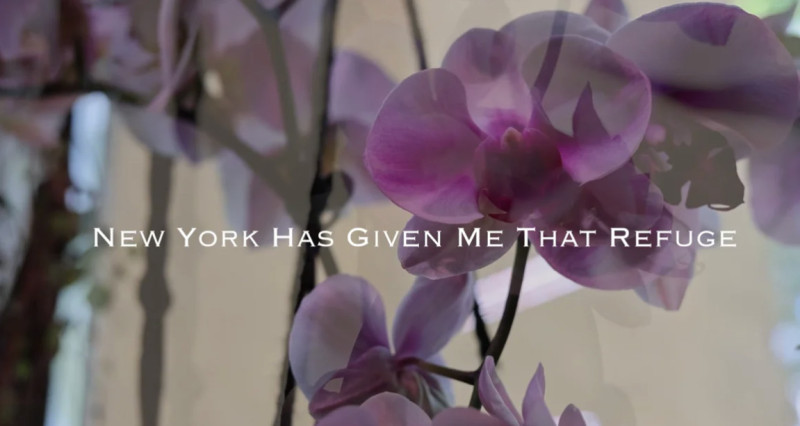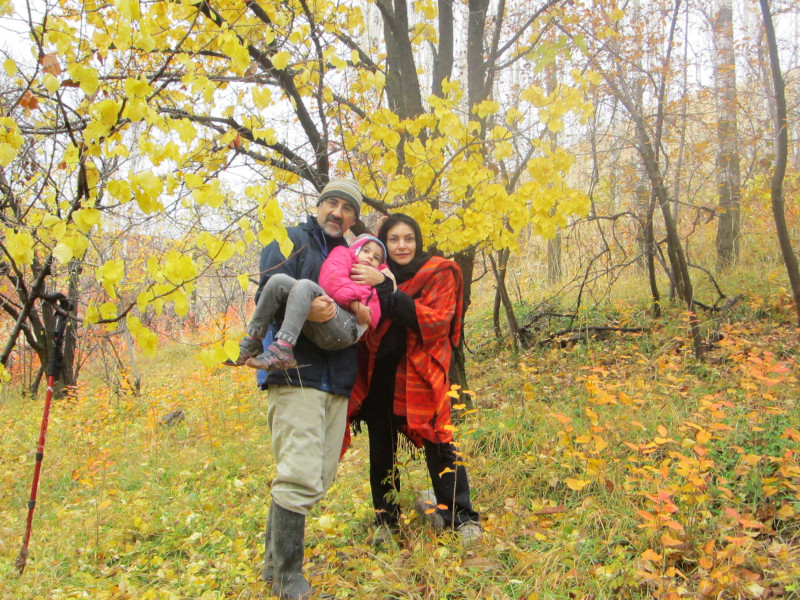
New York has given me that Refuge
In this film, refugee South Asian LGBTQ+ activist Barbara Khan talks about her migration from Pakistan and her life in New York as a trans woman.

Can you tell me something about your identity? In what way this experience of seeking refuge or having to leave your country of residence shapes your nowaday life, work, academic life? The role of Farsi in your life or culture from home?
You have introduced this as a sort of broad definition of “refugee”. I guess I’m willing to own the fact that I am a refugee. I am an immigrant. I emigrated and I had to find refuge because I was forced. My immigrant status did not protect me from the need to become a refugee… […]
My relationship with my culture and with Iran and Farsi, the Persian language, Persian culture is very profound, and it plays an extremely important role. It now plays a very interesting, unexpected role. One of the reasons I believe that I decided to go back to Iran as an adult was because I had felt very estranged, frankly, from my country, from my culture. And if there’s one particular aspect of the culture that I can point to, that kind of crystallizes that feeling of distance and the displacement, it would be the language.
I do remember as a teenager visiting my father, who was exiled in Switzerland, where he was working for the United Nations. I remember him listening to the Persian language, BBC’s Service News, and I remember feeling extremely frustrated because I was not able to follow as well as I wanted to, all the dialog and all the nuances. And I felt extremely frustrated. And that memory did remind me that I actually must have felt strange, because it was also very strange for my family. My father was listening to something. I wanted to share that with him. And it was hard.
Because I had left Iran very early, I was unable to read and write Persian. My speaking Persian was very middle level, not fluent, not like a native speaker. I think that is one of the motivations and emotions that led me to do something which my family felt was actually not prudent and did not support, which was to go back to Iran under the Islamic Republic.
When I went back in 1998 for the first time, I decided I would teach myself the Persian language at a university level, at a level at which I could do research and I could teach, and I became more or less successful at doing that.
The first time I had refuge here [in NYC], I was motivated to go back to Iran because I wanted to reconnect with the culture and the language and the music. I ended up playing classical Persian music which is something that I wanted to do. And that’s also a very sort of cultural emotive aspect of the connection.
When we were in exile, and we came to New York again in 2016 for my second refuge and my wife’s first refuge again the question of language looms very large for us. For me, there is a very positive side of this, the positive side of the fact that it is a challenge for her to integrate into American society because English is not her native tongue… I can see through her eyes how difficult it is for an immigrant to integrate because frankly, she feels disempowered as a [professional, resourceful] woman, as an immigrant…
As a husband, as a father, as a citizen, but also as a scholar, there is a positive side of this. I see the world of immigrant life in a much richer and more realistic way because it is part of us, that we are a family. And I see it through her experience.
I didn’t experience that before because I grew up in an English-speaking milieu. And I came to the United States and English was not a problem. And New York, of course, is very welcoming to different ethnic groups and people from different national origins. But this time I now experience New York as an immigrant vicariously through my wife.
And now my daughter, she maintains her Persian. It’s a challenge for us, like all immigrant families to make sure that the children maintain their native language.
American culture is very strong. English language is very strong. So, you asked about the language, and these were the three different ways in which the language played, I think, an important role and still does play an important role for me.
Kian Tajbakhsh – Iranian Political Exilee and Coordinator of the Committee on Forced Migration, Columbia University. He was born in Iran and came to New York in the fall of 1984 for the first time. In around 2000-2001 he decided to move back to Iran and leave his academic position. In 2007 he was arrested for “promoting Western forms of democracy” for the first time and in the summer of 2009 a second time. After spending more than a year and half in Evin Prison, from 2010 to 2016 he remained under house arrest unable to work or leave the country. In February of 2016 he was released and returned to New York City with his family.
Interview conducted by the We Refugees Archive with Kian Tajbakhsh in the spring of 2022. The interview was edited for length and clarity.